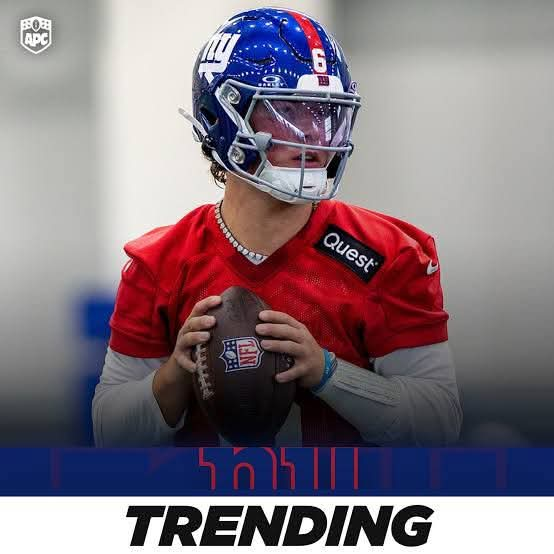Loyalty Over Lucre: Giants QB Jaxson Dart Shuns $4.5M Alabama NIL Offer in Stunning Show of Allegiance—Redefining Loyalty Amid College Football’s NIL Era
In a stunning move that has shaken the foundation of college athletics, New York Giants quarterback Jaxson Dart has reportedly turned down a $4.5 million Name, Image, and Likeness (NIL) offer from the University of Alabama. Dart’s decision to remain loyal to the Giants, rather than pursue one of the most lucrative opportunities in college sports history, has ignited a national conversation about loyalty, legacy, and the evolving values within collegiate athletics.
While NIL deals have become the new norm in college football, with players leveraging their marketability for substantial earnings, Dart’s choice to prioritize team allegiance over financial gain is both rare and symbolic. In an era where player movement is rampant and big-money offers are reshaping recruiting dynamics, Dart’s stance is not just unexpected—it’s revolutionary.
Sources close to the situation confirmed that Alabama aggressively pursued Dart, promising a package worth $4.5 million that included endorsements, appearances, and exclusive partnerships. For most athletes, especially in a sport as physically punishing as football, this would have been an offer too good to refuse. But for Dart, the value of loyalty outweighed the glitter of quick riches.
Dart, who has steadily become the face of the Giants’ collegiate program, has emphasized his commitment to his team, coaches, and the New York community. In a statement released through the university, he said, “This program believed in me before the world did. I came here to build something special, and no amount of money can replace that sense of purpose and brotherhood.”
His decision comes at a time when NIL deals are fundamentally reshaping the landscape of college sports. The NCAA’s 2021 rule change opened the floodgates for athletes to monetize their personal brands. Since then, the college football ecosystem has tilted toward a quasi-professional model, where loyalty often takes a backseat to opportunity.
Dart’s stand, however, raises important questions about the true purpose of collegiate athletics. While players certainly deserve to be compensated for their labor and likeness, has the balance tipped too far in favor of commercialism? Has the essence of team culture and institutional loyalty been compromised? Dart’s decision injects fresh perspective into these debates, suggesting that loyalty, legacy, and love for the game still hold value for some.
Coaches, analysts, and former players have praised Dart for his maturity and principle. “In today’s college football, what Dart just did is unheard of,” said one Power Five coach. “He didn’t just turn down a paycheck—he made a statement about what really matters.”
From a broader lens, Dart’s decision may serve as a cultural counterweight in a sport racing toward commercialization. It’s a reminder that not every athlete is motivated solely by financial incentives. His example could inspire other players to evaluate what they truly value in their collegiate careers.
As college football continues to navigate the complex waters of NIL, Dart’s story stands out not just as an act of defiance but as a beacon of integrity. In choosing loyalty over lucre, Jaxson Dart didn’t just stay with his team—he potentially reshaped the future ethos of the game.
